Articles from December 2023
Faculty and Staff: Submit grant awards, honors, research publications, accepted talks, and other news items through the faculty and staff news form.
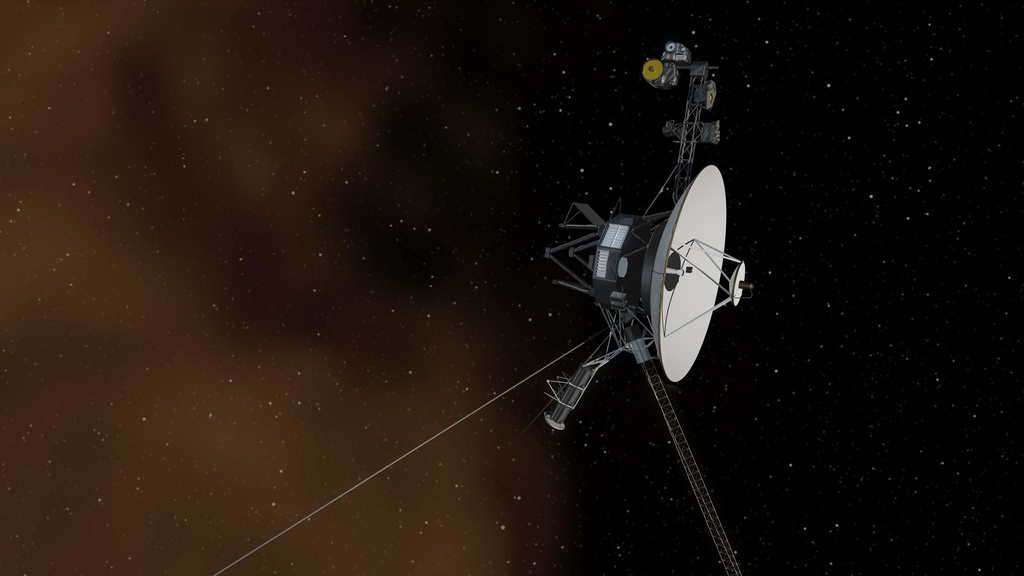
Kurth Discusses Voyager Mission
Friday, December 22, 2023
Bill Kurth was interviewed on the Dec. 21 BBC Science in Action program about the iconic Voyager 1 craft, which has started sending back nonsense data. Kurth, who has worked on Voyager since its launch in 1977, reveals his personal and scientific connection to the mission.
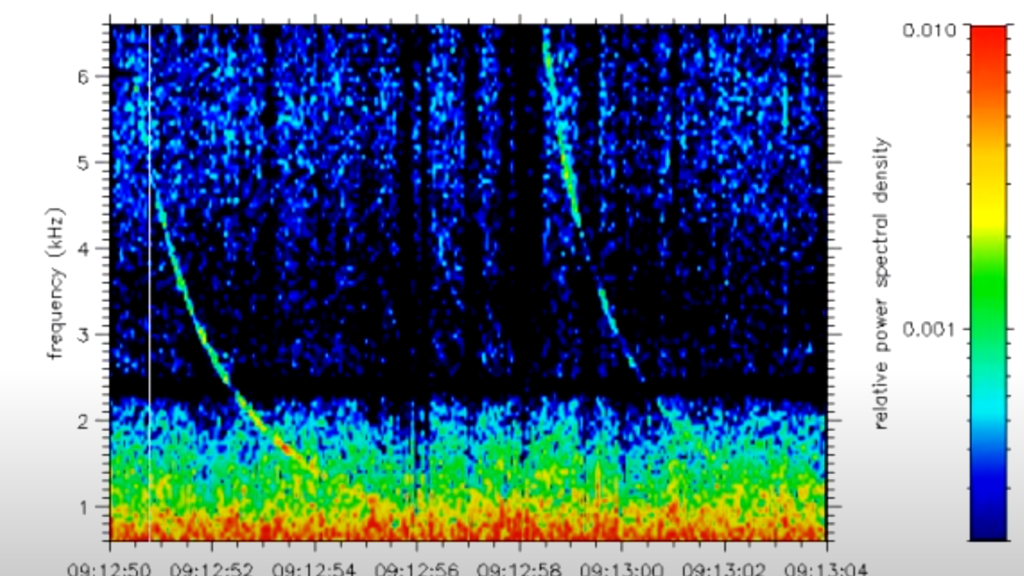
Kurth Describes How Sounds from Space Revealed Lightning on Jupiter, Saturn
Thursday, December 21, 2023
In this AGU Eos article "The 21st Century’s “Music of the Spheres”about how data sonification is used to analyze and appreciate cosmic objects, Research Scientist/Engineer Bill Kurth describes how Voyager 1 recorded signals known as whistlers to detect lightning in the roiling clouds of Jupiter. The Cassini spacecraft, which orbited Saturn for 13 years, similarly revealed lightning in the ringed planet’s atmosphere.
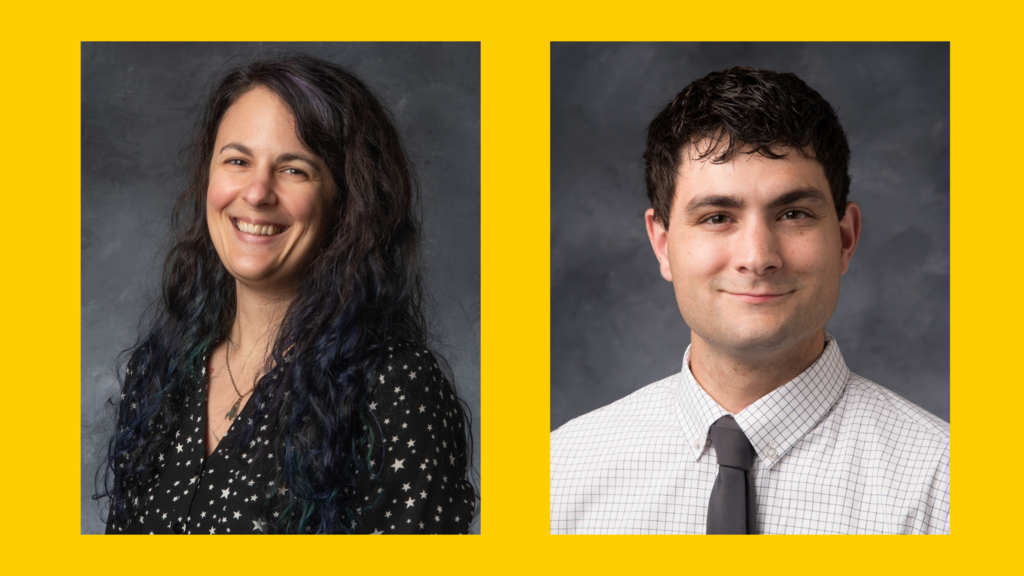
Hoadley, DeRoo Receive Nancy Grace Roman Technology Fellowships
Thursday, December 21, 2023
Professors Keri Hoadley and Casey DeRoo have been awarded Nancy Grace Roman Technology Fellowships in Astrophysics for Early Career Researchers.
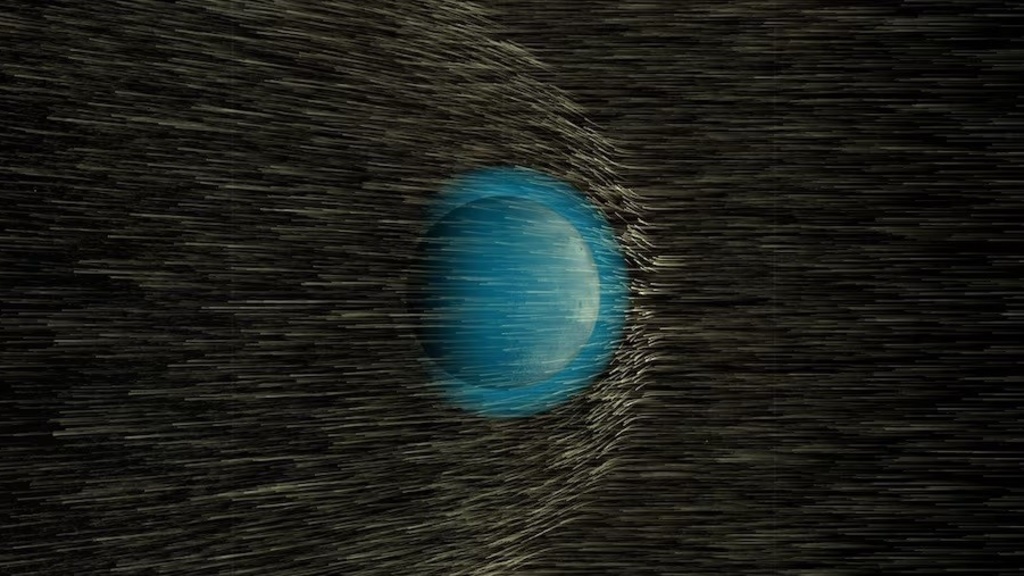
Halekas, Jaynes Discuss Solar Wind Disappearances near Earth and Mars
Tuesday, December 19, 2023
In this article in the Washington Post, Prof. Jasper Halekas comments on the MAVEN spacecraft's observation in December 2022 of a sudden lull in the solar wind around Mars, with the density of the solar wind around Mars dropping by a factor of 100. Later in the article, Prof. Allison Jaynes discusses how low-density solar events in the Earth's atmosphere can disrupt communications and cause an unusually intense polar rain — a type of aurora.
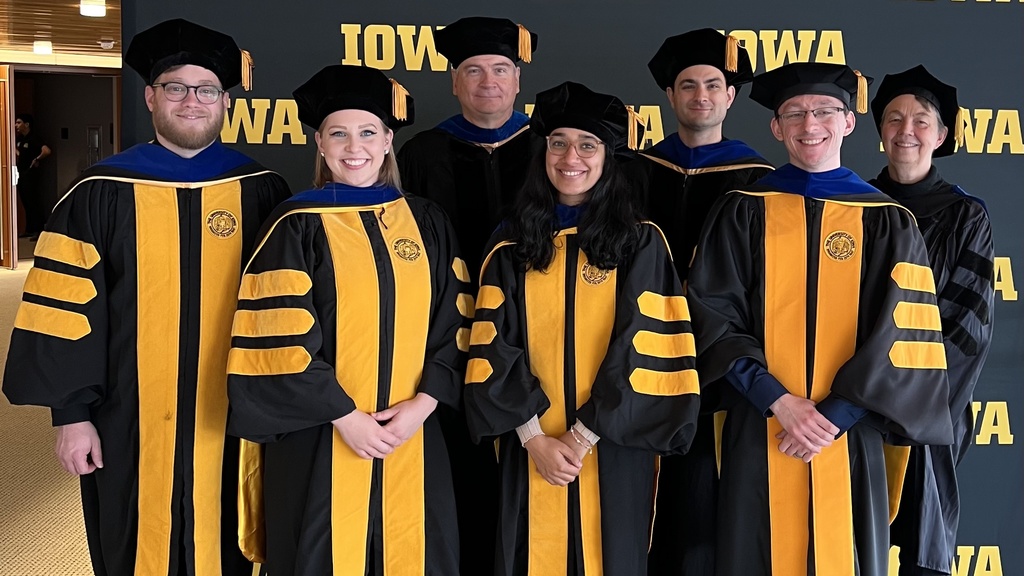
Congratulations Fall 2023 Graduates!
Monday, December 18, 2023
Several students in the Department of Physics and Astronomy were candidates for degrees at the University of Iowa Fall Commencement ceremonies Dec. 15-16.
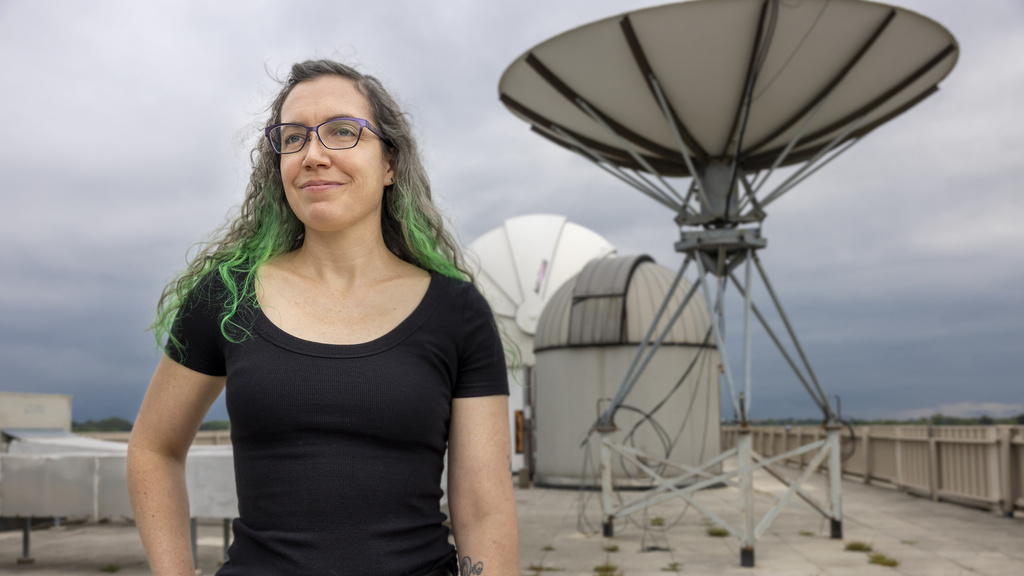
APS News: The Scientist Who Launches Rockets at the Northern Lights
Thursday, December 14, 2023
At an APS meeting in Denver, astrophysicist Allison Jaynes discussed her work on auroras and the strange plasma physics that shapes them. Jaynes, this year’s recipient of APS’s Katherine E. Weimer Award in plasma physics, discussed her research at this year’s meeting of the APS Division of Plasma Physics in Denver, Colorado.
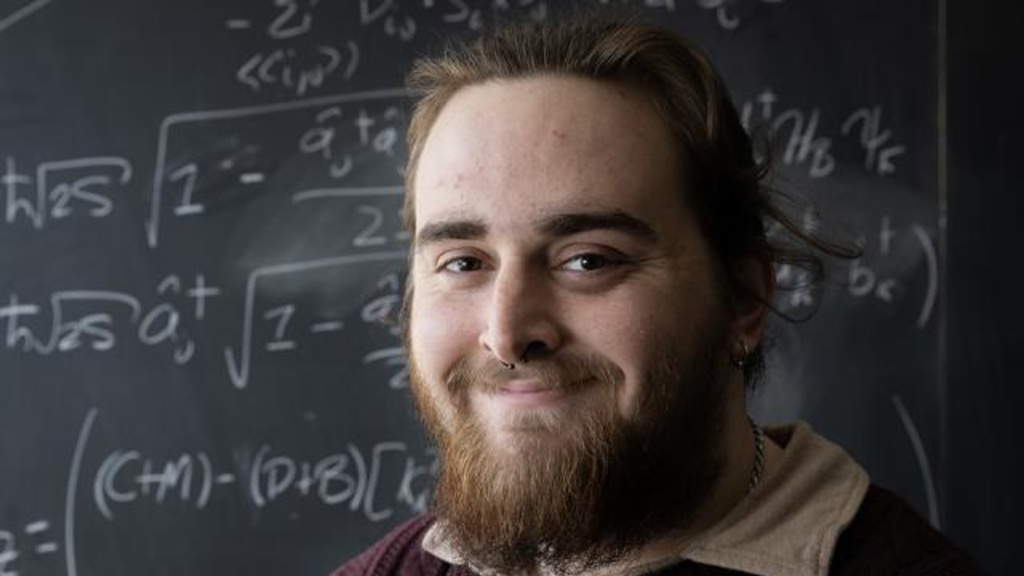
Leiberton Recognized For Presentation at APS Prairie Section Meeting
Tuesday, December 12, 2023
Undergraduate physics student Jeff Leiberton was awarded a Student Presentation Prize for his poster presentation of "Towards Topological Magnons for Hybrid Magnonic Systems" at the 2023 Fall Meeting of the Prairie Section of the American Physical Society (APS) held Nov. 30 to Dec. 2 at the University of Missouri-Columbia.
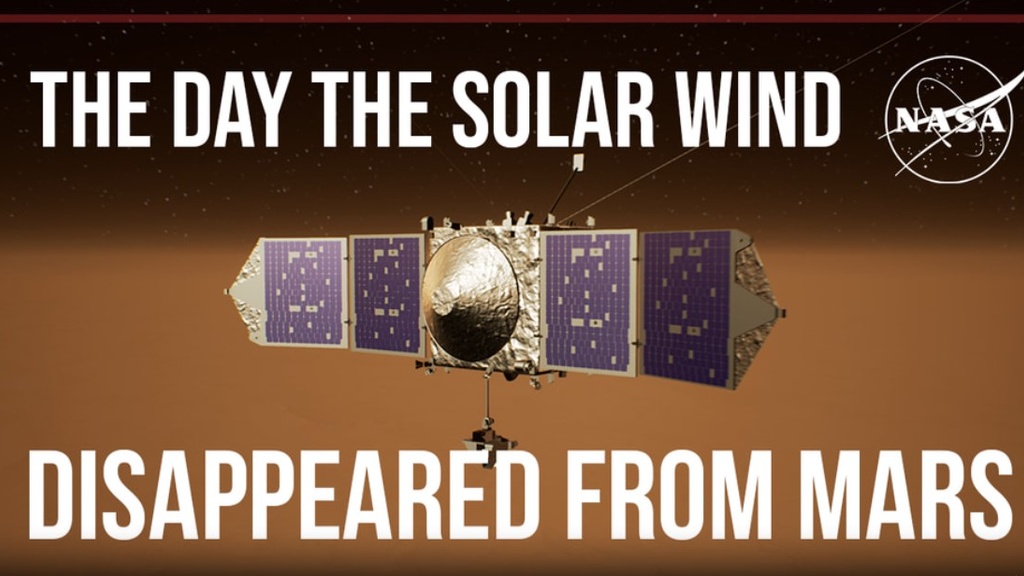
MAVEN Observes the Disappearing Solar Wind
Tuesday, December 12, 2023
In December 2022, NASA's MAVEN (Mars Atmosphere and Volatile EvolutioN) mission observed the dramatic and unexpected "disappearance" of a stream of charged particles constantly emanating off the Sun, known as the solar wind. This was caused by a special type of solar event that was so powerful, it created a void in its wake as it traveled through the solar system.
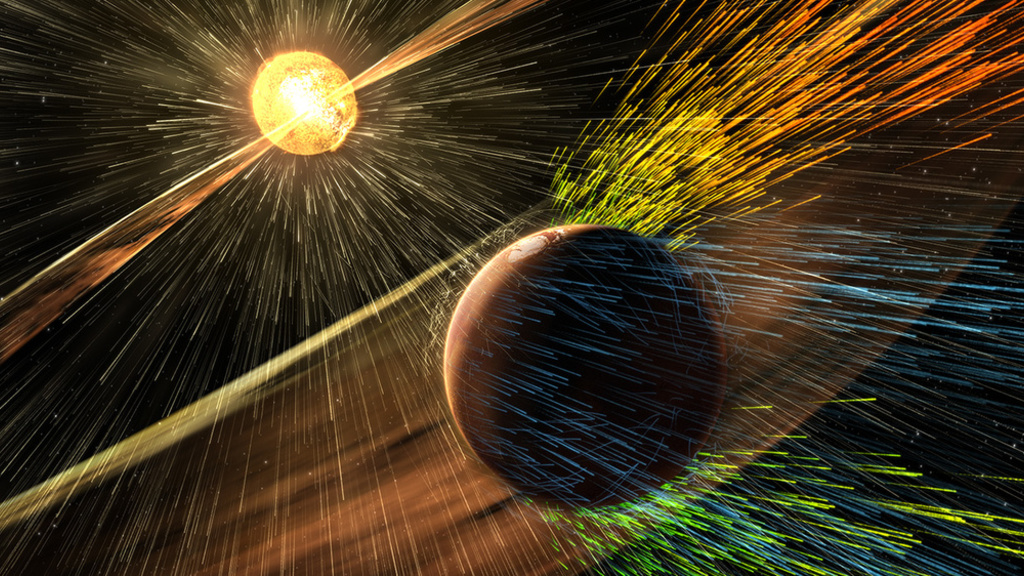
The day the solar wind died on Mars
Tuesday, December 12, 2023
Prof. Jasper Halekas leads research to explain the solar wind’s disappearance on Mars.
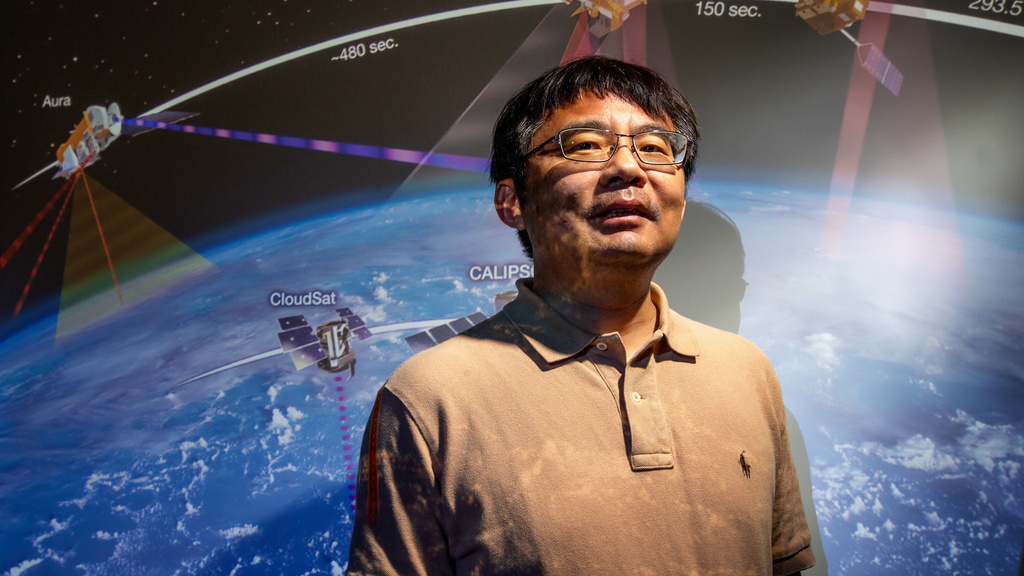
Jun Wang contributed to one of Time Magazine’s 'best inventions' of 2023
Friday, December 8, 2023
Prof. Jun Wang, who holds a secondary appointment in the Department of Physics and Astronomy, is Iowa’s lead investigator on Tropospheric Emissions: Monitoring Pollution or TEMPO. The space instrument is expected to help scientists understand the sources of pollution by revolutionizing how real-time air quality data is collected.